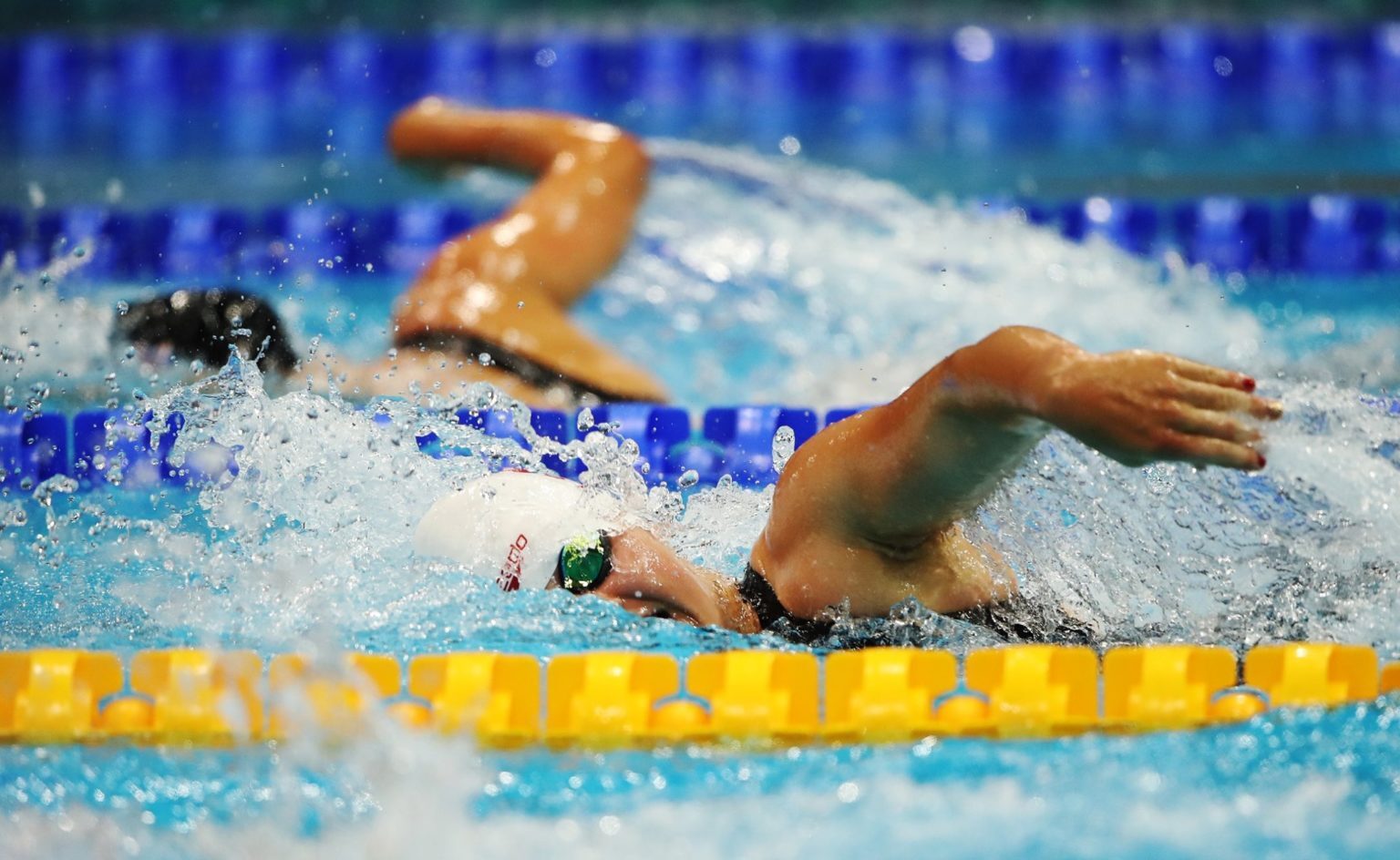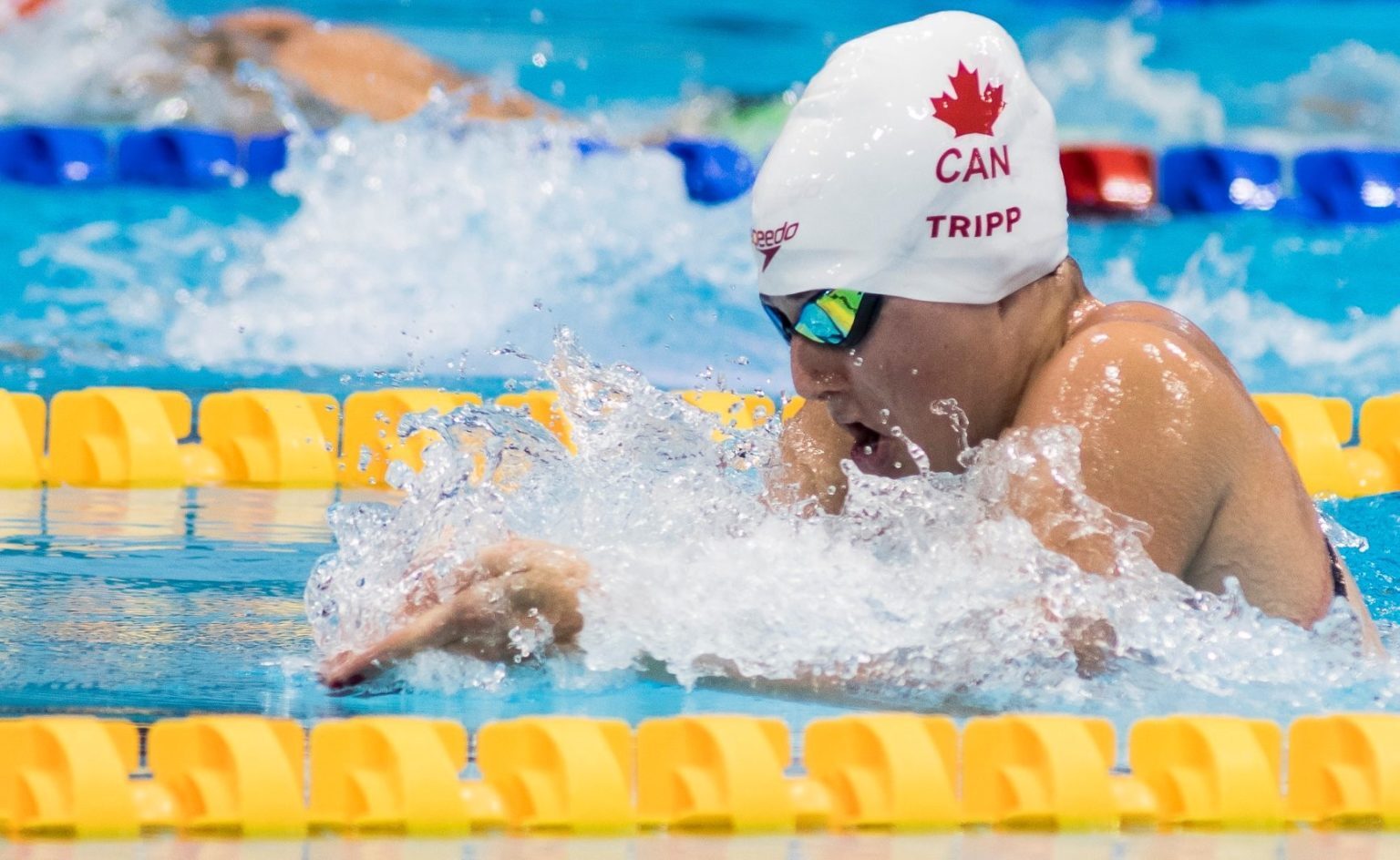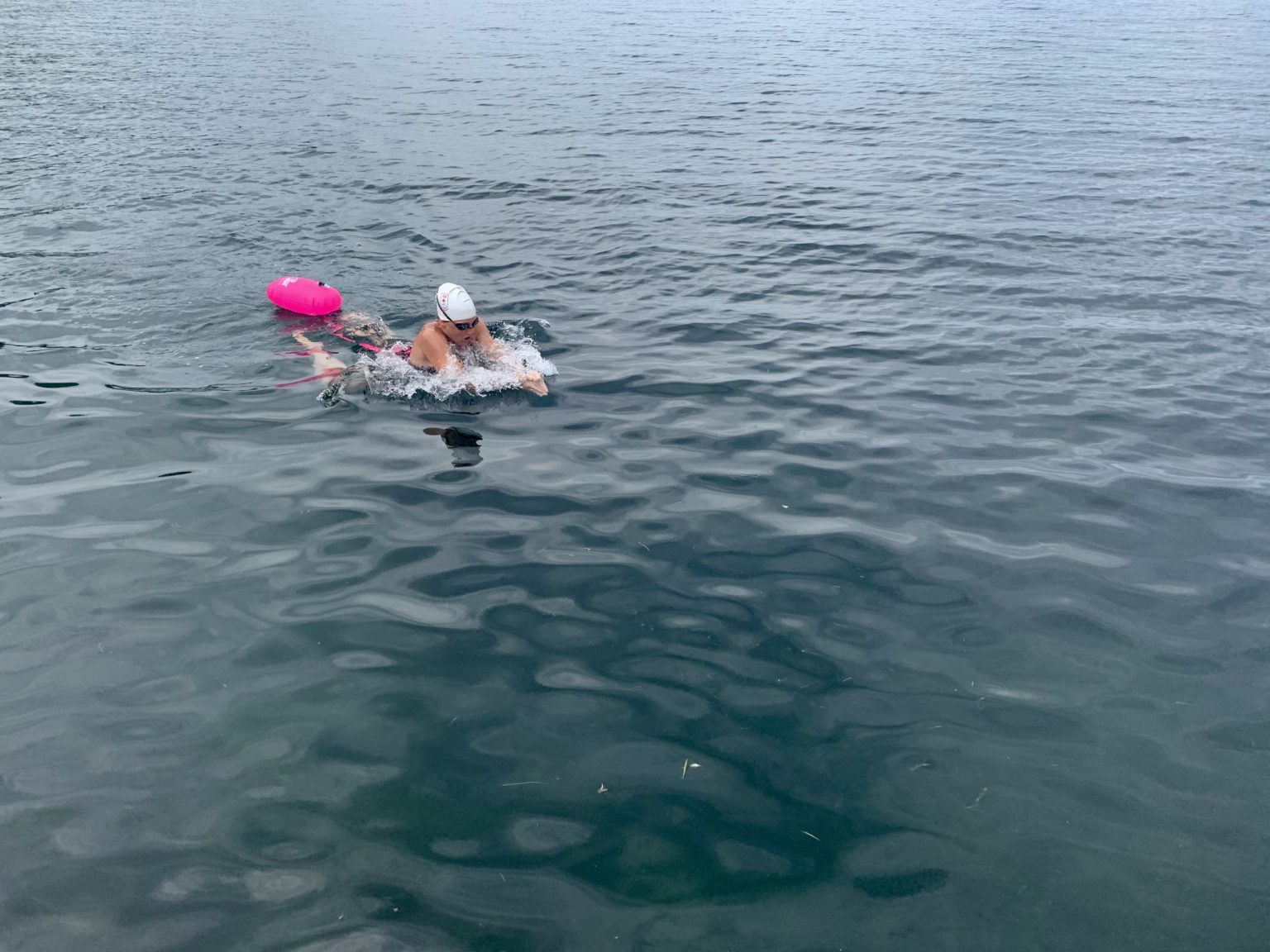It was only by chance – or perhaps fate – that Abi Tripp took a deep dive into competitive swimming.
Tripp’s introduction to swimming was at the age of five, when she and her older brother were signed for the Kids of Steel Triathlon by their mother. The event took place in 2006, and Tripp didn’t swim at the time. Vicki Keith, a world record-holding marathon swimmer (she swam across all the Great Lakes in 1998) was there as a Kingston celebrity. We spoke with Abi Tripp about how her competitive swimming journey began and continues to thrive as she heads toward the Tokyo 2020 Paralympic Games.
“I was running around the two little trees at RMC (Royal Military College of Canada) and [Vicki] saw me and was like, ‘That kid needs to be on my team.’ I was wearing my ankle-foot orthotics and probably just walking like a true CP – which stands for cerebral palsy – and then she talked to my mom and the next year I was six years old and old enough to join the team.”
This summer marks Tripp’s second Paralympic Games, but she believes she never would have discovered swimming if that chance encounter at RMC hadn’t taken place, especially since she didn’t like swimming much as a child. In Tokyo, she’ll be competing in the 100-metre breaststroke in the SB7 category, the 50-metre freestyle S8, the 100-metre freestyle and 4×100-metre freestyle relay.

Tripp, who has cerebral palsy and dystonia, looks back on the beginning of her swimming journey with the Kingston Y Penguins and Vicki Keith as her coach. The Y Penguins provides a swimming environment for youth with disabilities and their able-bodied siblings. The welcoming atmosphere made seemingly small tasks – such as walking across a pool deck – an entirely different experience for Tripp as a child.
“It was very much growing up there. I hardly remember my life without the Penguins and I’m so thankful for that. I think it’s hard, having a disability in our world. I think it’s hard to stand out when so much of what we do is to fit in…it can be challenging. I was always wearing my ankle-foot orthotics and I was falling over a lot. My last name is Tripp, and I tripped a lot and that wasn’t very helpful at school. Now I can laugh at that. I think it’s pretty funny but, in the moment, I think that that’s really challenging, and the Y Penguins was a place where I had complete freedom.”
Tripp feels privileged to be able to access this kind of environment in Kingston. It was a steady presence, a constant in her childhood and teenage years. From those starting to learn how to swim to people attending international meets representing Canada, the Y Penguin’s wide range of abilities fueled her dream to compete for Canada.
Now that her goal of qualifying for the Paralympics has been reached – twice – Abi Tripp believes it’s her ambitious nature and dedication to inspiring others that keeps her afloat.

“In general, with athletes, especially Paralympic, Olympic athletes, we’re very goal-oriented people. We all have moments where we’re lacking motivation, but at the same time, there’s not really time to lose motivation. There’s always something we’re working towards and for me, personally, I am an ambitious person, and my goal is to be able to reach my full potential and see how fast I can swim and to work as hard as I can. I know that my platform as a Paralympian is bigger. It gives me a larger voice so I can connect with more people and that’s something that jazzes me up, to be part of something bigger than myself, to help grow awareness for parasports, to get more kids in the sport, to talk about inclusion, to talk about women in sport.”
All these passions help keep Tripp focused on training, along with creativity. She reveals that she sees swimming as an art form, as “a platform on which she can dance.” By combining technical pieces with creativity, she strives to make her swimming look as beautiful and effortless as possible – while going as fast as she can.
“With parasport, with paraswimming, it is absolute creativity because everybody’s body is different. Every body moves differently, everybody has different strengths and weaknesses. For me, my legs are not the strongest thing in the pool: it’s my arms. Breaststroke is a stroke that’s focused on your kick. The kick is the most important part, but for me, I’ve created a stroke that works for me and that does the job. You have to be creative…I think that’s what keeps me feeling young in the sport and excited about it.”
At the Rio 2016 Paralympics, Tripp made the finals in three events and broke Canadian records with her times in the 400 free and 200 IM. As the Tokyo 2020 Paralympics approach, she feels as though it’s all coming full circle. From beginning at the Y Penguins as a non-swimmer, to doing her own coaching there, Abi Tripp has learned that focusing on the joy of swimming – not the medals that may come with it – is key. There’s value in sport, because of the joy it brings, because of the confidence it cultivates, and because it builds community.

“I’m going to be swimming until I can’t swim anymore, so if I can do anything to help at least one other kid with a physical disability or a young girl, if I can help them or shed a little bit of light on the possibilities for them to be a part of sports, I think it’s so worth it. Sport is something that is universal, anybody can do it and it gives somebody a community.”
Read more stories about Kingston Athletes